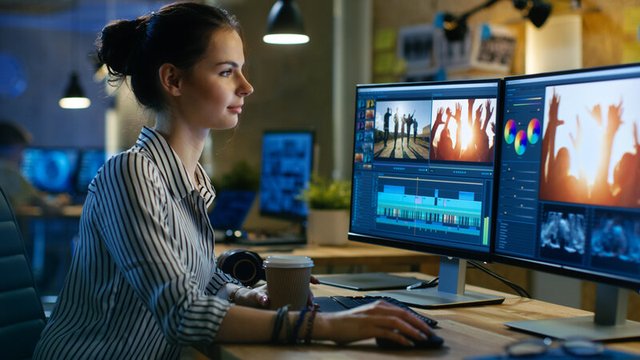
What does a video editor do?
Edited on March 26, 2024

In the ever-changing digital landscape, video content has become the heart and soul of communication. From social media, blogs, and other media channels, video is one of the main ways to communicate with an audience.
And behind every seamless video lies the expertise of a skilled video editor. But what does a video editor do? In this post, we’ll dive into the intricacies of this dynamic role and explore the skills required, daily tasks, work settings, and educational pathways to becoming a proficient video editor, such as by studying a Degree in Advertising.
The role of a video editor
A video editor is akin to a visual storyteller, responsible for assembling raw footage into a coherent, engaging narrative. They meticulously craft videos by selecting the best shots, arranging them in a logical sequence, and enhancing them with effects, transitions, and audio.
Video editors play a crucial role in conveying emotions, delivering messages effectively, and maintaining the overall aesthetic appeal of the content.
Skills required to be a video editor
Becoming a proficient video editor requires a blend of technical expertise and creative flair. Essential skills include proficiency in video editing software such as Adobe Premiere Pro, Final Cut Pro, or DaVinci Resolve.
A keen eye for detail, strong communication skills, and the ability to work efficiently under pressure are also vital.
Additionally, staying updated with the latest trends and techniques in video editing is crucial to delivering contemporary and engaging content.
What does a video editor do on a daily basis?
On a typical day, a video editor juggles various tasks to bring a project to fruition – depending on their place of work. This may involve:
- reviewing raw footage, selecting the best shots, trimming clips, and arranging them in a logical sequence.
- fine-tune transitions, add special effects, colour correct footage, and synchronise audio elements to create a cohesive visual experience.
- collaborate with directors, producers, and other team members is common to ensure the video aligns with the intended vision.
Where do video editors work?
Video editors can be found in a myriad of settings, including:
- film production studios,
- advertising agencies,
- television networks,
- corporate companies,
- freelance capacities.
With the rise of digital platforms and social media, opportunities for remote work and freelance editing have expanded significantly. Some video editors also specialise in specific niches such as documentaries, music videos, or commercials, catering to diverse industry needs.
What should you study to be a video editor?
There are many ways into a career as a video editor, one of which is the degree mentioned above. Employers today look for applicants with industry knowledge and the skills to succeed from day one. The academic model at Universidad Europea is based on experiential learning, meaning you will have a hands-on experience throughout your time with us.
Our campus facilities some of the best in Spain, and you will be able to benefit from having access to our media lab, video editing studios and more.
In addition, we have agreements with leading companies and organisations in the media and video production sector where you can carry out internship and work placements, gaining the skills neede to succeed and building up your network of contacts.
Article published on April 1, 2024